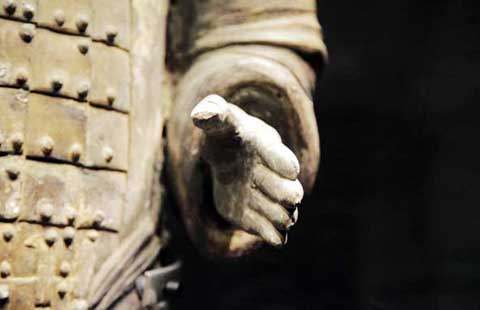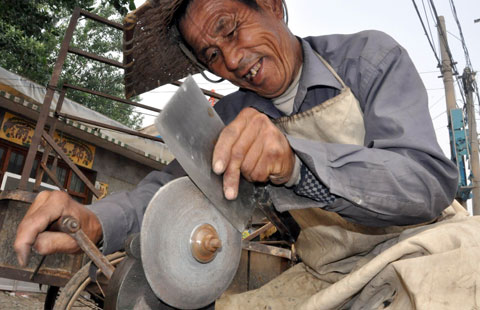Ancestor hunter
By Liu Zhihua ( China Daily ) Updated: 2014-10-14 07:29:02
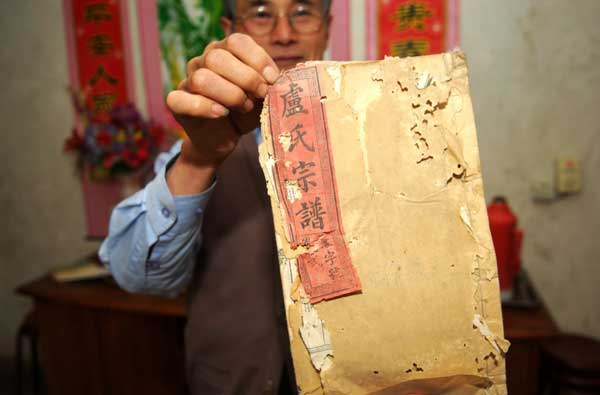 |
|
Lu Hongman, a resident of Gushi county, Henan province, displays his family's jiapu with a history of 300 years. [Photo by Xiang Mingchao/China Daily] |
In 2008, Lie started digging into where his own ancestors were from, and soon traced his mother's roots to a village near Zhangzhou, Fujian province, which the family left seven generations ago.
That was also the first time he saw a jiapu.
But tracing his father's family history required much more effort.
Finally, after finding the name of the original ancestral village written on his great-grandfather's tombstone in Indonesia, he narrowed down his paternal ancestors' origins to a village called Zhu Shan on Jinmen island, which was once part of Fujian but is now administered by Taiwan, and found out his father's ancestors left six generations ago for Indonesia.
His investigation gained him a reputation among his friends, many of whom are overseas Chinese eager to know more about their Chinese roots.
"Seeking roots for an overseas Chinese is a combination of exploring history, culture and psychology. I make less money but I am happier," he says of his decision to quit a well-paid job with an international firm and launch his own company on genealogy research.
Earlier, Chinese people left their homeland mostly because of poverty, war or social unrest, and clients are often inspired by the personal stories of their forefathers written in jiapu and then feel a stronger bond with China, Lie says.
So far his company has unearthed the Chinese roots of more than 25 clients from the US, Europe, Australia, Central America and elsewhere.
"I'm moved by what you do. Great job and wish you all the best!" says one post on the company's Sina Weibo, the Chinese equivalent of Twitter.
|
|
|
|
|
|
|
|
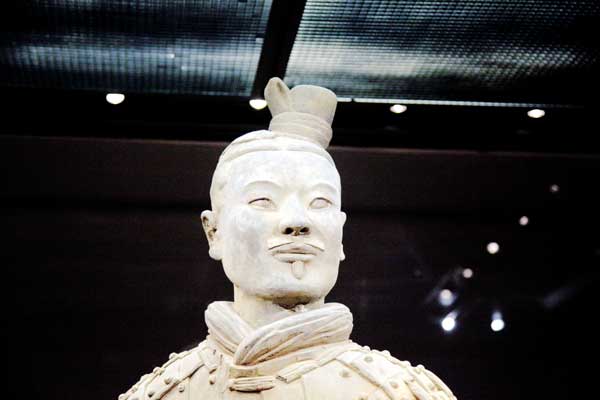
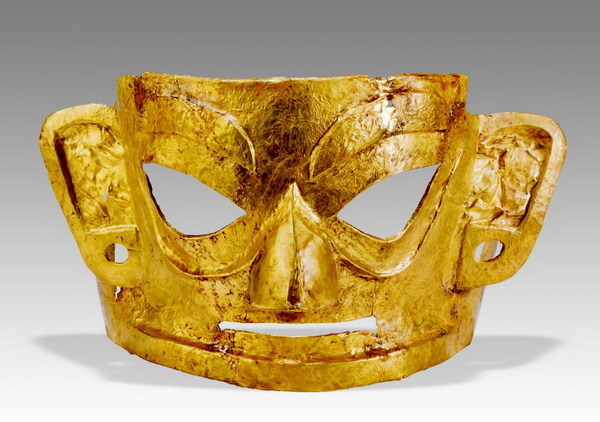

















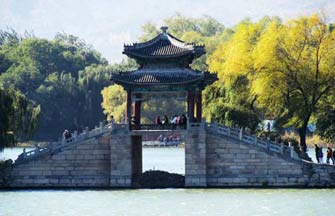



 Raymond Zhou:
Raymond Zhou: Pauline D Loh:
Pauline D Loh: Hot Pot
Hot Pot Eco China
Eco China China Dream
China Dream China Face
China Face

